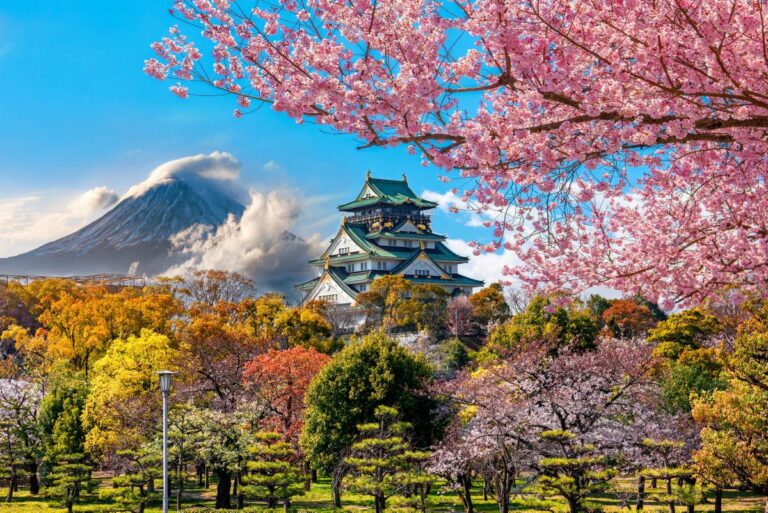Japan has unveiled plans to establish a new “economic zone” connecting the Indian Ocean to the African continent, signaling its ambition to deepen economic ties and expand its strategic influence across the region. This initiative comes amid growing competition among global powers for access to critical trade routes and natural resources. By fostering greater cooperation with countries along this corridor, Japan aims to strengthen infrastructure development, enhance maritime security, and play a more prominent role in shaping the economic landscape of the Indo-Pacific and African regions, according to an announcement reported by AP News.
Japan’s Strategic Vision for an Economic Corridor Connecting Indian Ocean to Africa
Japan is advancing an ambitious plan to establish a robust economic corridor that seamlessly connects the Indian Ocean to Africa’s eastern coastline. This strategic initiative is designed to bolster trade links, infrastructure development, and regional security cooperation across some of the world’s most dynamic emerging markets. By fostering deeper economic integration along key maritime routes, Japan aims to cement its influence in a region long dominated by competing global powers, ultimately shaping a new axis of growth and stability.
Core elements of the vision include:
- Infrastructure investment: Developing ports, logistics hubs, and transport networks to streamline trade flows
- Energy cooperation: Securing stable energy supplies and facilitating renewable energy projects
- Security partnerships: Enhancing maritime security to safeguard shipping lanes and prevent piracy
| Aspect | Current Challenges | Japanese Approach |
|---|---|---|
| Trade Connectivity | Fragmented routes and insufficient port capacity | Upgrading port infrastructure and customs processes |
| Energy Security | Dependence on unstable sources | Diversifying energy supplies & investing in renewables |
| Maritime Security | High piracy risks and territorial disputes | Joint naval exercises and surveillance systems |
Implications for Regional Trade and Security Dynamics
Japan’s proposal to establish an economic corridor stretching from the Indian Ocean to Africa signals a strategic pivot that could significantly reshape regional trade networks. By fostering enhanced infrastructure connectivity between Asia and East Africa, Tokyo aims to streamline supply chains and open new markets for Japanese enterprises. This initiative could also serve to offset China’s Belt and Road influence, providing alternative routes and partnerships for countries along the Indian Ocean rim.
From a security perspective, the plan introduces complex dynamics as Japan increments its presence in a geopolitically sensitive area. Increased maritime cooperation and the potential for joint security frameworks might bolster counter-piracy operations and protect vital shipping lanes. However, regional stakeholders must navigate tensions arising from intensified great-power rivalry, balancing economic ambitions with diplomatic sensitivities.
- Trade diversification: reduces dependency on traditional partners.
- Maritime security: enhanced patrols and intelligence sharing.
- Infrastructure investment: new ports, railways, and logistics hubs.
- Geopolitical balancing: mitigates single-power dominance risks.
| Sector | Immediate Impact | Long-term Effect |
|---|---|---|
| Trade | Improved port efficiency | Expanded market access |
| Security | Joint patrol initiatives | Regional stability frameworks |
| Investment | Infrastructure funding influx | Sustainable economic growth |
Recommendations for Stakeholders to Enhance Collaboration and Sustainable Development
To effectively realize the ambitious vision of an integrated economic zone connecting the Indian Ocean to Africa, stakeholders must prioritize inclusive dialogue and transparent governance mechanisms. Engaging local governments, regional organizations, and private sector players in decision-making processes will ensure diverse perspectives shape sustainable development strategies. Moreover, fostering public-private partnerships can bridge funding gaps and leverage technological innovation for infrastructure projects, ultimately improving trade routes and resource management across the corridor.
Environmental stewardship and social equity should be at the forefront of all initiatives to avoid exploitative practices and ecological degradation. Recommendations include:
- Implementing stringent environmental impact assessments before project approval.
- Supporting capacity-building programs for local communities to participate in and benefit from economic growth.
- Encouraging collaborative research on renewable energy and marine conservation.
| Stakeholder | Key Role | Priority Action |
|---|---|---|
| National Governments | Policy Alignment | Harmonize trade regulations |
| Regional Bodies | Coordination | Facilitate cross-border cooperation |
| Private Sector | Investment & Tech | Drive infrastructure innovation |
| Communities | Local Insights | Participate in sustainability planning |
To Conclude
As Japan moves forward with its proposal for an economic zone spanning the Indian Ocean to Africa, the initiative signals Tokyo’s ambition to deepen its strategic and economic footprint in a region increasingly shaped by global powers. With the stakes high amid shifting geopolitics, Japan’s outreach underscores its intent to foster partnerships, promote development, and secure vital trade routes, positioning itself as a key player in the region’s evolving landscape. The coming months will reveal how this vision unfolds and whether it can translate into tangible influence across the Indian Ocean rim and beyond.




